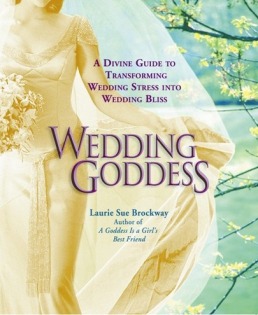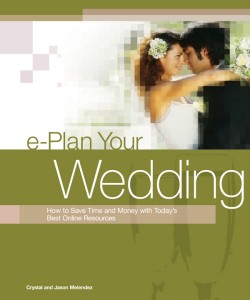
Here’s How to Figure Out the Kind of Ceremony YOU want
By Rev. Laurie Sue Brockway
In this new age of wedding ceremonies, anything goes!
Unless a couple chooses to be married in a religious ceremony that will follow a time honored religious protocol, they can be as creative as they like. The range of options is vast.
Finding your personal style is a matter of deciding the type of ceremony most suited to you, and getting a sense of which rituals, blessings, prayers, readings, and cultural or religious aspects are personally meaningful.
In my line of work as an interfaith and non-denominational wedding officiant, it’s all about blending. First we assess the general type of ceremony that is right for each couple. Then we seek ways to blend in the traditions they do like, with creativity, romance and personal touches.
These personal touches can be anything from aspects of their religions or cultures, to honoring and involving family, to including a humorous story about how they met or a poignant poem that captures their feelings. Or all of the above!
As a reference point, I like to explain to couples that there are several types of weddings to choose from.
Traditional
These are typically faith-based and culled from the tradition the bride and groom were born into.
Non-denominational
A spiritual ceremony that includes reference to God, but does not adhere to any particular religious protocol.
Non-religious
Usually includes no reference to faith and typically does not mention God. (Some people call it a civil ceremony, but in fact a civil ceremony often mentions God).
Interfaith
This is a blending of two or more faiths, by including aspect of religion or religious rituals or readings that are symbolic of each faith.
Intercultural
This is a blending of cultures – such as a Filipino veil ceremony with a Chinese red string ritual and yet can certainly also blend religious aspects.
That said, from my perspective, you can do all of the above in one specially tailored ceremony. The biggest issue is deciding if you want to reference God at all – some couples clearly do, but would rather not have religion, or clearly don’t, and want to have something that is more about their love and relationship. The trick is to find a creative officiant who is not bound to a particular religious protocol.
These are some of the questions I ask couples when consulting with them about creating a personalized wedding.
1. Where does religion fit in – or does it? Would you like to include an aspect of the faiths you were born into without the dogma? Do you want to include mention of God – or would you prefer blessing upon your union without mention of Divine presence?
2. What kind of ceremony would be most suited to the two of you? Would you like something personal yet that includes aspects of your traditions? Or would something romantic and offbeat be more your style? On the spectrum between a formal and traditional ceremony and the wackiest exchange of vows you can think of, where are you? Somewhere in the middle, or somewhere on the edge, wanting to be different?
3. What are your special needs? Think about the requirements you each may have. Is one of you more religious than the other? Is one of you atheist or agnostic? Are you an interfaith pair? Do you hail from different cultures? How much do you want to honor your heritage and the traditions of your parents and family, etc? Is there anything you abhor about those traditions and would never want in your own ceremony?
4. What do you two truly want? Most importantly, be completely honest with one another (and then, your officiant). Make sure you are creating this ceremony for the two of you – not just to please others.
I give couples this mantra to adhere to as they seek to create a ceremony all their own: “We will create our wedding ceremony our way.”
© Rev. Laurie Sue Brockway, 2006, all rights reserved..
————————————-
ABOUT THE AUTHOR:
Rev. Laurie Sue Brockway is a leading interfaith and non-denominational wedding officiant who specializes in creating unique and romantic wedding ceremonies for couples of all faiths, backgrounds and cultures. She is also widely recognized as a bridal stress expert devoted to helping brides-to-be tap into their inner power and poise. She is the founder of annual Blessing of The Brides and author of WEDDING GODDESS: A Divine Guide To Transforming Wedding Stress into Wedding Bliss (Perigee Books, May 2005).
www.WeddingGoddess.com

 By: Crystal and Jason Melendez
By: Crystal and Jason Melendez